June 17, 2025 | 22:05 GMT +7
June 17, 2025 | 22:05 GMT +7
Hotline: 0913.378.918
June 17, 2025 | 22:05 GMT +7
Hotline: 0913.378.918
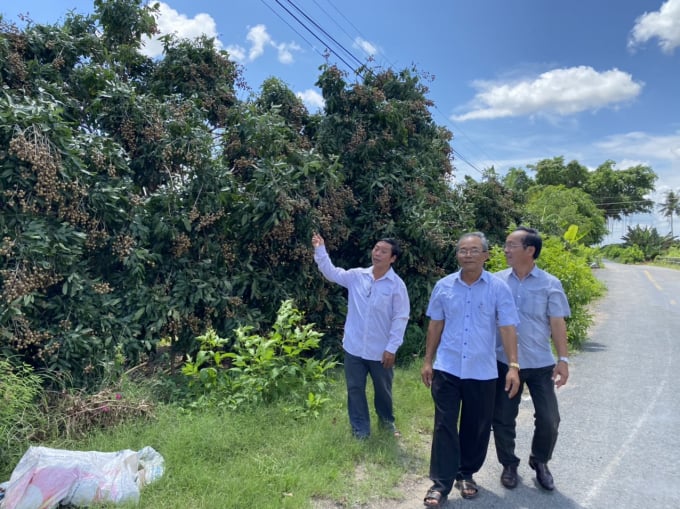
An Hoa island, where the first club in Dong Thap was established province. Photo: Hoang Vu.
Tien river flowing through the delta has taken its own alluvium over time to form islands separate from the shore. In Chau Thanh district, Dong Thap province, there is such an island located in An Nhon commune. The Tien River tributary flows to Sa Dec together with Lap Vo River embracing three islands including An Hoa, Tan An and Tan Hoa, building up a rich dune area. It is collectively known as An Hoa island.
This place is not only famous for the Chau Thanh Longan brand exported to the USA market but also the cradle of the first agriculture club in Dong Thap province, the Canh Tan Club. Many people believe the agriculture club model in Dong Thap is like a "detonator" that trigger change, an important premise for collective economic development. From the dunes of An Hoa, the model then spread to many other provinces in the delta.
Passing through Cai Tau Ha town, Mr. Vo Dinh Trong, Head of the Department of Agriculture and Rural Development of Chau Thanh district boarded the ferry with me to An Hoa island. People of the dunes are both honest and naive and "strangely" eager to learn the good, the strange and the new. And when I say “strangely”, it’s because of the reflection of the head of the agricultural sector in Chau Thanh:
After the disintegration of the old agricultural production group model, people in the West were very afraid to talk about collective economy. Twenty years later that mentality is still intact. Although collective economy in recent years has been a major policy of the Party and State, without the agriculture club model, having a new form of cooperatives in Dong Thap like the present would have been impossible. In this Chau Thanh alone, 13 agricultural cooperatives of the district are born from agriculture clubs.
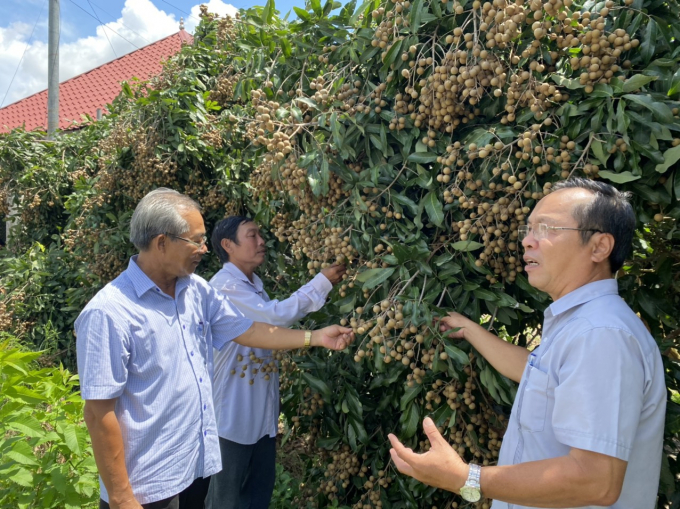
An Hoa island is a famous fruit area in Chau Thanh district. Photo: Hoang Vu.
Canh Tan Club often organizes activities at Ba Chua Xu Shrine, which is said to be the person who broke the wasteland and allowed cultivation to start in An Hoa island. Welcoming me and Mr. Trong were Chairman Nguyen Van Thuan, commonly known as Ut Dung and Mr. Nguyen Thanh Binh, Director of Chau Thanh Fishery Production and Service Cooperative.
Around the temple blooming thousands of luxuriant fruit trees, the two men passionately talked about the club, the cooperative, the changes in agricultural thinking not only of An Hoa, about Vietnamese fruit trees and even about the agricultural market in the USA.
In that story, the Canh Tan Club was born by pure chance. It is told that when he was Secretary of the Dong Thap Provincial Party Committee, “Mr. Sau Hoan” (Minister of Agriculture and Rural Development Le Minh Hoan) regularly invited scientists to visit and talk with the people, especially in remote places like the dunes of An Hoa.
Hearing that the Secretary of the Provincial Party Committee came down, people were filled with joy. They invited each other to come and ask about all kinds of things in the world, mainly revolving around farmers, hamlets and communes. This person asked where the crop could be sold, another asked what kind of fish should be raised here.
The next time it was more crowded than the last time, sitting in the house of locals forever would be such a bother. “Or maybe we can set up a club, a place with relatives and friends can live together. It would be much better.” Thinking back and forth, in 2016 Canh Tan Club was finally established.
Mr. Ut Dung let me see some letters “Mr. Sau Hoan” sent the people in the early days. He wrote that the Canh Tan Club was born to "renovate", to renew so that each person, each family has conditions to take a step forward. "Renovate" meant to get rid of the habit of thinking "everyman for himself”. "Renovate" meant everyone should join hands, join forces to make the orchards bigger, the raw material areas larger, only then could we escape the trap of small, fragmented, spontaneous agroproduction.
The Chairman of the Renovation Club also said, thanks to the regular club activities, and meeting scientists such as Dr. Nguyen Thanh My, Chairman of My Lan Group, people have gained a lot of knowledge. They also had a chance to meet Dr. Tran Minh Hai of the Institute of Management for Agriculture and Rural Development, who was still traveling around the delta to talk to people about the benefits and advantages of collective economy. Then there were times people sat down together to have a meal with businesses. The activities, like small rain lays great dust, gradually changed their thoughts and changed their minds. They came to understand more about each other and have the knowledge to know whether their products had met qualifications or market standards.
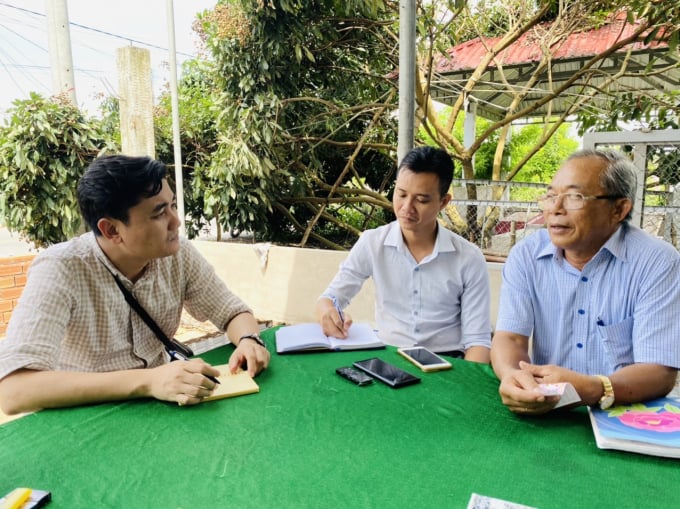
Canh Tan Club in Ba Chua Xu shrine is a place where relatives and friends meet and work together. Photo: Hoang Vu.
Listening to people like Mr. Trong, Mr. Binh, Mr. Thuan insisting that "without a club, there is no cooperative", I suddenly had this thought: The people were doing things "together". And when the talk about cooperative came, collective economic development became much easier. With 1,300 households, more than 5,000 people on An Hoa island, now there are many people who are members of Chau Thanh Fishery Production and Service Cooperative and An Hoa Safe Agricultural Product Cooperative.
One cool thing is that these two cooperatives are also a member of the agriculture club. The recent peak of the Covid-19 epidemic has shown all the benefits of collective economy. Despite the situation of "stopping rivers - banning markets", An Hoa’s longan and pangasius can still be sold thanks to the cooperatives.
Six years after the Canh Tan Club was established, up to now, Dong Thap province has had 116 models of assembly halls with more than 6,192 members. It is worth noting that the whole province has 176 agricultural cooperatives, but 30 of which had their starting point from agriculture club.
As shared by Mr. Le Quang Cuong, Vice Chairman of Dong Thap Cooperative Union, it is a new multi-functional institution in the countryside. With the motto "Hard work - Self-reliance - Cooperation", activities at the club have helped farmers approach clean production procedures, responsible agriculture, smart agriculture; change in perspective and be free from small and fragmented production practices; reorganize production in the direction of cooperation and association, contributing to the formation of production - processing - consumption linkage for domestic products and export; open the path of developing cooperative and collective economy.
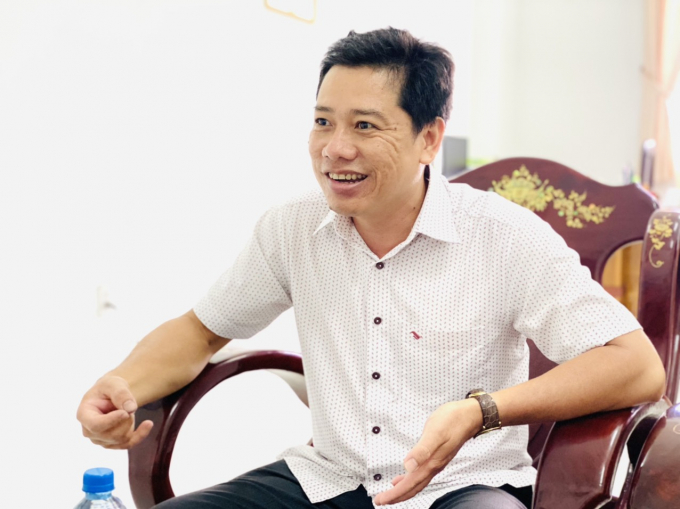
Mr. Le Quang Cuong, Vice Chairman of Dong Thap Cooperative Union. Photo: Hoang Vu.
And among them, Tinh Thoi Agricultural Service Cooperative in Tinh Thoi commune, Cao Lanh city is quite special. This is the only unit established from two clubs of Dong Tam and Thinh Hung. Perhaps that's the reason why Tinh Thoi is now a model cooperative, having a spacious office and one of the most modern factories in the land of Sen Hong.
Tinh Thoi is a mango growing land with an area of more than 1,100 ha, supplying the market with over 10,000 tons of fruits per year. Like many other fruit granaries in the delta, the problem of how to produce, whom to sell the products to, or how to "produce associated with consumption" is nowhere easy. Cooperative is the solution, but it “cannot be done in one shot”.
Mr. Vo Tan Bao, the Vice Chairman of the Commune Farmers' Union, likened the journey from club to cooperative to a mountain climbing journey. “The harder it is, the more perseverance it requires, but the results are something to be proud of.”
Recalling the early days of Dong Tam and Thinh Hung clubs, there were only 30-40 members. People were so used to the "everyman for himself’ mindset, so telling them to sit down and talk to each other posed to be almost impossible.
Nonetheless, the club was the place to relieve and resolve those barriers. Especially when the people who participated in the past come back and spoke to others, telling them that there were many good things to learn in the club such as knowing how to take better care of mango trees or that standard mangoes will be bought at a much higher price.
From 30 - 40 people, gradually the number of members of the club increased to hundreds, and in 2018 Tinh Thoi Cooperative was born with 156 members, of which 95% are members of the club. Although the human factors and policies remained limited, it posed no problem when the ideology was cleared and a sustainable business path is already outlined. “Saying ‘revolution’ seems like a big deal, but once relatives know things ‘together’, nothing is too difficult to execute.”
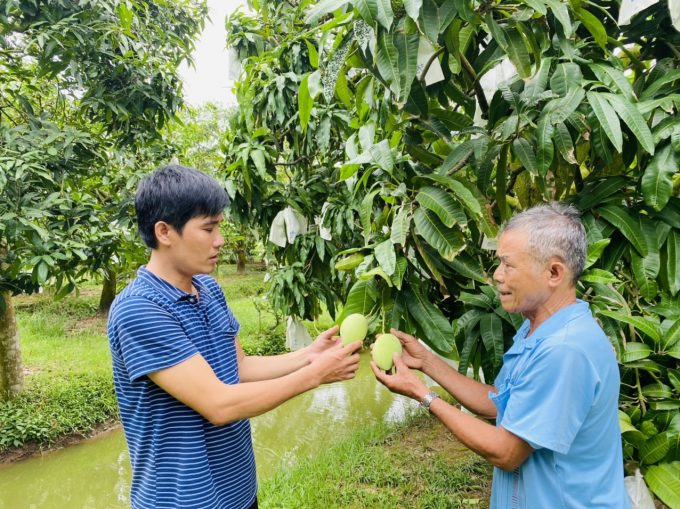
From the assembly hall to the establishment of a cooperative - a successful model in Tinh Thoi. Photo: Hoang Vu.
Tinh Thoi Cooperative now operates in four lines of work: pesticides and fertilizers selling, agricultural equipment and fishing gear selling, mango bags selling, and mango selling to local people. One more special thing to say is that most of the members working in the cooperative do not receive a salary, but only receive dividends at the end of the year, which means they “must” do good business.
Tinh Thoi's biggest change is moving from a single production model to applying science and technology and linking with businesses for chain production. There the central role of cooperative is clearly demonstrated when Tinh Thoi signs a contract to consume tens of thousands of tons each year with Go Dang Co., Ltd., Cat Tuong Co., Ltd., Sunrise Hi-tech Cooperative, Kim Nhung Co., Long Uyen Co., Ltd, and signs a contract to supply mangoes of all kinds to Big C supermarket chain.
I originally thought that once the cooperative was established, the club would complete its mission, but turned out that’s not the case. The management team of the cooperative and the Board of Directors of the clubs still regularly discuss to continue to improve the quality of operations and devise business plans, especially for mango consumption associate services. In face of challenges and difficulties, they work together to promptly solve them.
After all, farmers are the one who can give the most honest evaluation for a certain model or policy. Elder farmer Tran Van Ho (65 years old) in Tan Thanh Chau hamlet said, "People who grow mangoes in Tinh Thoi, in Dong Thap make a profit as they are now thanks to the club and cooperative. Tinh Thoi mangoes now go to the USA and Europe. The scene of selling mangoes as cheap as giving or having the prices being pressured by traders can be seen no more. Thanks to participating in club activities and joining cooperatives, my 1 ha of Cat Chu mangoes every year makes a profit of more than VND 400 million.”
Translated by Samuel Pham
![Turning wind and rain into action: [7] Early disaster warnings help marine farmers minimize losses](https://t.ex-cdn.com/nongnghiepmoitruong.vn/608w/files/news/2025/06/17/z6704423696987_15fd32ffc26d590d204d520c9dac6786-nongnghiep-142942.jpg)
(VAN) In recent years, thanks to early disaster warnings and forecasting, marine farmers in Khanh Hoa province have been able to reduce risks and losses, thereby improving production efficiency.
![Turning wind and rain into action: [5] Hue applies modern technology in disaster forecasting](https://t.ex-cdn.com/nongnghiepmoitruong.vn/608w/files/news/2025/06/17/z6704423696987_15fd32ffc26d590d204d520c9dac6786-nongnghiep-093938.jpg)
(VAN) In Hue city, modern technology has recently been applied in meteorological and hydrological forecasting and warning, helping to reduce the damage caused by natural disasters.

(VAN) A cutting-edge farming technique being implemented on an experimental ranch in Arizona's Sonoran Desert has already saved a billion gallons of water over five years, according to Civil Eats.

(VAN) Poultry and pig production and the environment can be boosted through enhanced water technology, according to new research.
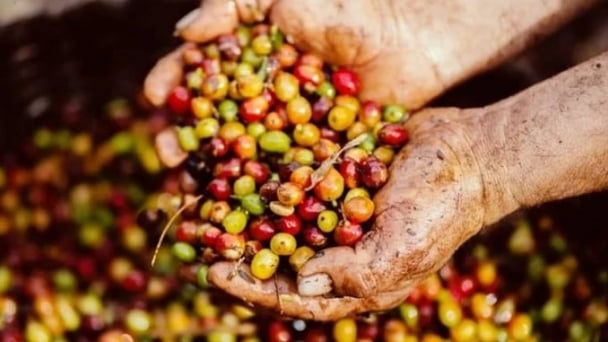
(VAN) Coffee prices on June 16, 2025 are unchanged. In Vietnam, local trading prices are holding steady, ranging around VND 112,000 – VND 112,500/kg.
![Turning wind and rain into action: [4] Bringing climate bulletins to remote and isolated areas](https://t.ex-cdn.com/nongnghiepmoitruong.vn/608w/files/linhnhp/2025/06/14/1152-z6704423696987_15fd32ffc26d590d204d520c9dac6786-nongnghiep-151141.jpg)
(VAN) The Vietnam Agriculture and Nature Newspaper interviewed Mr. Vu Thai Truong, Acting Head of Climate Change and Environment at UNDP Vietnam, to gain deeper insight into how climate bulletins are delivered to farmers.

(VAN) In Tien Giang, a high-tech shrimp farm has developed a distinctive energy-saving farming model that has yielded promising results.